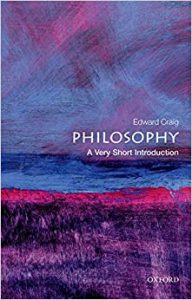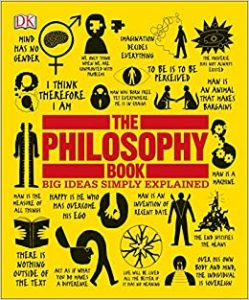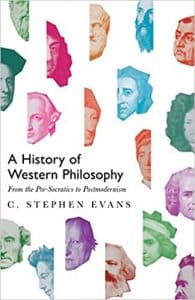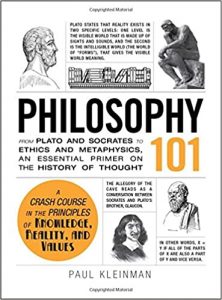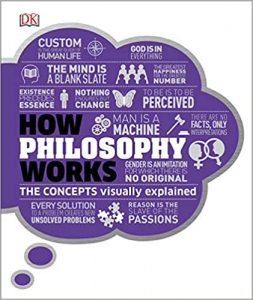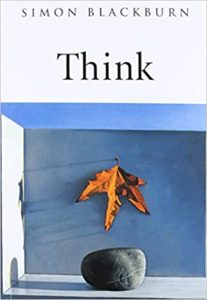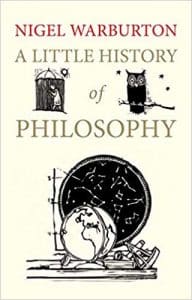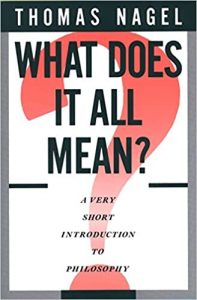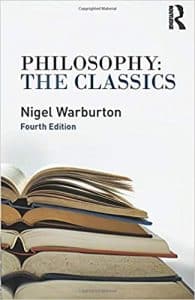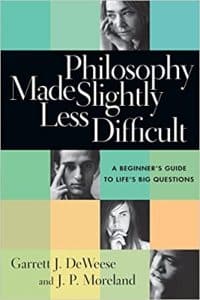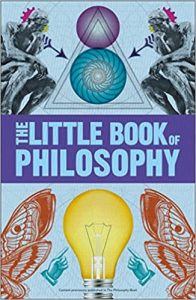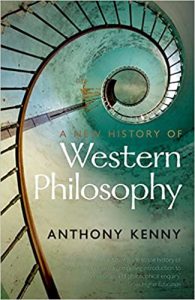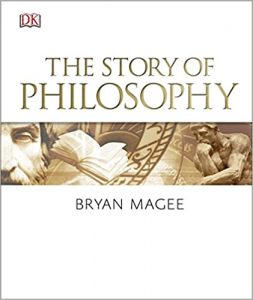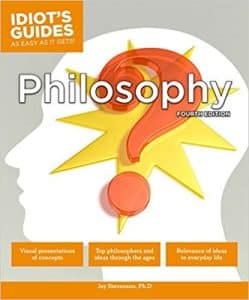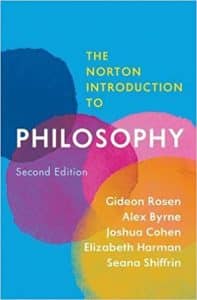15 Best Philosophy Books for Beginners (Introductory Books to Start With)
I read a lot of philosophy during my graduate years. However, let’s be honest. While incredibly useful in expanding our minds, many great philosophical works tend to be packed with dense or archaic writing. So, the question here is: if you’re just getting into the subject, what are some of the best philosophy books for beginners to start with?
To help you, here’s my personal list of easy-to-follow introductory books on philosophy. These accessible reads will help you start to tackle the many fascinating questions and concepts that define the field.
Here, I’ll focus mainly on Western philosophy. I’ll create another book list about Eastern philosophers at a later time.
In addition, keep in mind that these books on philosophy simply aim to give a broad (but interesting!) overview of the subject. When you’re ready, you’ll likely want to pick up the original texts of philosophers who really pique your interest.
Disclaimer: This post contains Amazon affiliate links. Please refer to our privacy policy for more details.
Click here to pin this book list on your Pinterest!
My picks of the best philosophy books for beginners
1. A Very Short Introduction series
To start with, I think some of the best philosophy books for beginners comes from the A Very Short Introduction series, published by Oxford University Press.
As the name suggests, each book in this series serves as a quick introduction on a specific topic, packaged as a pocket-sized read.
For example, Philosophy: A Very Short Introduction provides an insightful summary of key themes relating to ethics, identity, knowledge, and more. It also explains the defining ideas of many Western philosophers, including Plato, Socrates, Descartes, Hegel, and other prominent thinkers.
For more specificity, there are also further philosophy books in the series that individually examine Stoicism, Aristotle, Aquinas, the philosophy of science, and various other sub-categories of the field.
Overall, I think the A Very Short Introduction series has a little bit of something for everyone. In addition, each book is written by an established expert in his / her respective field, so you’re in good hands.
In short, don’t expect too much depth. Nonetheless, these short books about philosophy make for very entertaining reads that’ll get your mind churning and yearning for more.
- Craig, Edward (Author)
- English (Publication Language)
- 144 Pages - 05/16/2002 (Publication Date) - Oxford University Press (Publisher)
2. The Philosophy Book: Big Ideas Simply Explained
You’ve probably seen this book lying around your local bookstore. In my opinion, it’s one of the best philosophy books for beginners available, thanks to its accessibility.
The bulk of the book is structured around addressing key philosophical questions. Why do we exist? What is ethical thinking? Is there absolute good and evil? And so on.
Most pages begin with a quote from a famous philosopher – before going on to explain his / her underlying logic and meaning. A huge range of great thinkers from different philosophical traditions are covered. This includes the Greeks, pioneers of the Enlightenment, the Romantics, and much more.
Overall, I absolutely love the book’s eye-catching presentation. There are a ton of beautiful illustrations that help make complex philosophical discussions far more digestible to the casual reader.
In short, The Philosophy Book is easily one of the best philosophy books for beginners to get into before tackling the harder original texts.
Also check out our list of 13 best Bibles for children!
3. A History of Western Philosophy: From the Pre-Socratics to Postmodernism
I think author C. Stephen Evans has done a truly admirable job tracing the history of Western philosophy, spanning the days before Socrates all the way up to postmodernism.
Don’t expect colorful illustrations here. However, what you will get is a wonderful summary of key philosophical strands of thought, how they relate with each other, and how they’ve shaped our modern world today.
As an introductory read, Evans sticks to simple language with very clear explanations. I especially enjoyed his thorough yet digestible overview of the differences between Hume and Kant. His exploration of Nietzsche’s lasting impact was also engaging.
In short, I think A History of Western Philosophy is a perfect fit for fresh students of philosophy. Evans strikes a good balance between staying accessible and raising profound questions, inviting for further learning.
However, keep in mind the book is a bit pricey (due to its relative rarity?). You might want to first search for it in your local library.
4. Philosophy 101 (An Essential Primer on the History of Thought)
I find Philosophy 101 to be an alluring introduction to the history of great philosophers and their ideas, presented in chronological order.
As with other beginner books on philosophy, author Paul Kleinman adopts simple words to convey complex ideas. In addition, he smartly uses bullet points to break down major philosophical arguments into their core aspects. This makes everything much easier to understand.
For example, Kleinman presents Plato’s Theory of Forms as being defined by two distinct characteristics. He then gives several examples to better illustrate the theory, thus grounding an otherwise abstract notion.
Overall, I think Philosophy 101 is a must-read if you’re keen on being pulled deeper into the wondrous world of philosophy.
- Hardcover Book
- Kleinman, Paul (Author)
- English (Publication Language)
5. How Philosophy Works: The Concepts Visually Explained
If you’re more of a visual learner, How Philosophy Works will be right up your alley.
The book seeks to demystify dense philosophical ideas via tons of beautifully designed infographics. Yet, despite avoiding heavy jargon, it doesn’t shy away from raising the big questions about life, consciousness, religion, and more.
I especially liked the section on phenomenology (i.e. the philosophy of human experience). This field of thought can be quite tricky to grasp, given its many varying threads. However, I think the book presents a great visual overview that really helps to clear the ambiguity for newcomers.
In addition, How Philosophy Works covers a good range of philosophers, including the usual suspects Plato, Kant, Nietzsche, and so on. Everything is organized by theme (e.g. ‘mind and body’, ‘deconstruction’, etc.), which makes for easy reading that won’t clutter your mind.
Interested in love? Here’s our list of the best non-fiction books about the history and philosophy of love!
6. Think: A Compelling Introduction to Philosophy
Simon Blackburn, who wrote Think, is also the author of the Oxford Dictionary of Philosophy, In other words, he knows his stuff, and most definitely has the cred to guide you on your philosophical journey.
The first chapter will be very useful for anyone who may be wondering why philosophy is so important in the first place. Above all, Blackburn makes an excellent case on the the subject’s timelessness, and why it matters when it comes to understanding life, meaning, and purpose.
Most of the book is shaped around core philosophical themes and questions. Blackburn uses this clear structure to introduce key philosophers, explaining how each person has added to the overall discourse.
I do think Blackburn’s writing gets a bit wordy in a few sections. However, this barely takes anything away from the overall coherency of his book.
In short, Think will be most suited to you if you’re searching for something beyond pocket-sized reads or ample illustrations – but aren’t quite ready for hefty philosophical tomes just yet.
7. A Little History of Philosophy
Published by Yale University Press, the Little Histories series is widely appreciated for its great introductions on big topics. I think A Little History of Philosophy is no exception!
Presented in clear chronological order, author Nigel Warburton covers a lot of ground as he raises many of philosophy’s biggest questions. As with other best philosophy books for beginners, everything is expressed in easy to follow language.
I love how Warburton goes beyond the predictable names (e.g. Plato, Socrates, Kant, etc.) by also including discussions on Freud, Singer, Arendt, and other influential thinkers.
In addition, Warburton offers ton of quirky, lesser known info on the lives of a few key philosophers. In my opinion, this biographical approach really gives cultural context to their ideas, thus making for a more engaging read.
Overall, I highly recommend A Little History of Philosophy as an ideal book to start with for beginners.
- Warburton, Nigel (Author)
- English (Publication Language)
- 272 Pages - 10/30/2012 (Publication Date) - Yale University Press (Publisher)
Do you procrastinate a lot? Check out these books to help you be more productive!
8. What Does It All Mean?: A Very Short Introduction to Philosophy
Thomas Nagel has written one of the best books on philosophy for beginners that also mixes in his personal opinions. I think this blended approach will inspire new readers to think more deeply on their own terms.
Instead of chronological, Nagel organizes his book around profound philosophical questions about existence, the meaning of life, and more. As you’d expect, he does this using simple words that, at the same time, encourages open-ended musings.
Overall, I think What Does It All Mean? serves as an excellent bird’s eye view of philosophy – without sacrificing analytical thinking and nuance. Brilliant!
9. Philosophy: The Classics
Routledge has released some incredible philosophy books for beginners over the years. However, Warburton’s Philosophy: The Classics is by far one of my favorites (yes, he also wrote A Little History of Philosophy!).
What separates this book from the rest is Warburton’s specific focus on diving into thirty-two different philosophical classics. This includes, among others, his summaries of Plato’s The Republic, Montaigne’s Essays, and Thomas Kuhn’s The Structure of Scientific Revolutions.
Above all, Philosophy: The Classics reads like a set of incredible SparkNotes about the revolutionary ideas that have lit the trail of philosophy for ages. It’s a unique approach that works as a solid introduction to the subject.
- Warburton, Nigel (Author)
- English (Publication Language)
- 320 Pages - 01/30/2014 (Publication Date) - Routledge (Publisher)
Here’s our exclusive list of 40 must-read non-fiction books!
More Best Books on Philosophy to Start With!
10. Philosophy Made Slightly Less Difficult: A Beginner’s Guide to Life’s Big Questions
Yet another fantastic introductory book on philosophy that’ll keep you immersed. Philosophy Made Slightly Less Difficult does exactly what you’d hope for: it inspires you to think about thinking!
Above all, I think the book thrives at fleshing out abstract concepts. For example, the chapter on metaphysics explains the various nuances (e.g. particularists vs methodists) that make up the broad field. Clear examples are also often provided, ensuring you’ll never feel overwhelmed.
11. Big Ideas: The Little Book of Philosophy
This pocket-sized gem packs an insightful overview of Western philosophy. More than a hundred thinkers are covered, including Descartes, Hobbes, Locke, and others.
As with most small books, don’t expect too much analytical depth. However, I consider Big Ideas to be among the best philosophical books for beginners, thanks to its easy language and structure.
12. A New History of Western Philosophy
Anthony Kenny’s guide on the history of Western philosophy is authoritative in its own right. This version combines four individual volumes that, together, brings you on a sweeping adventure across the vast epochs of human thinking.
Compared to a few other books on this list, A New History of Western Philosophy goes a bit more in-depth in its discussions. Perfect if you’re just starting to move past your initial interest in philosophy.
13. The Story of Philosophy
This intro text brims with bright illustrations and concise explanations that cover more than 2,500 years of philosophical thought.
What makes The Story of Philosophy stand out is its emphasis not just on pure philosophy, but also art. This is especially relevant during chapters that explore the value of aesthetics – or those that use images to sketch the cultural backdrop that gave rise to big philosophical ideas.
14. Idiot’s Guides: Philosophy
Don’t be fooled by the word ‘idiot’. I actually think Jay Stevenson’s Idiot’s Guide on Philosophy does a stellar job traversing a wide range of topics – more so than the rivaling Philosophy for Dummies.
In addition to typically mentioned philosophers, Stevenson also discusses many slightly less mainstream names. This includes Margaret Cavendish, post-structuralists Derrida and Lacan, postmodernists like Lyotard, and many more. A great effort – definitely not just for ‘idiots’!
15. The Norton Introduction to Philosophy
This introduction to philosophy is a pretty rare release. So, again, I suggest you first check your nearby library to see if they have it.
If you do locate a copy, you’ll be rewarded with one of the best philosophy books that aims to appeal to undergrads. Each chapter focuses on a specific philosophical topic with lots of concise explanations. There are also useful study guides to reinforce what you learnt.

